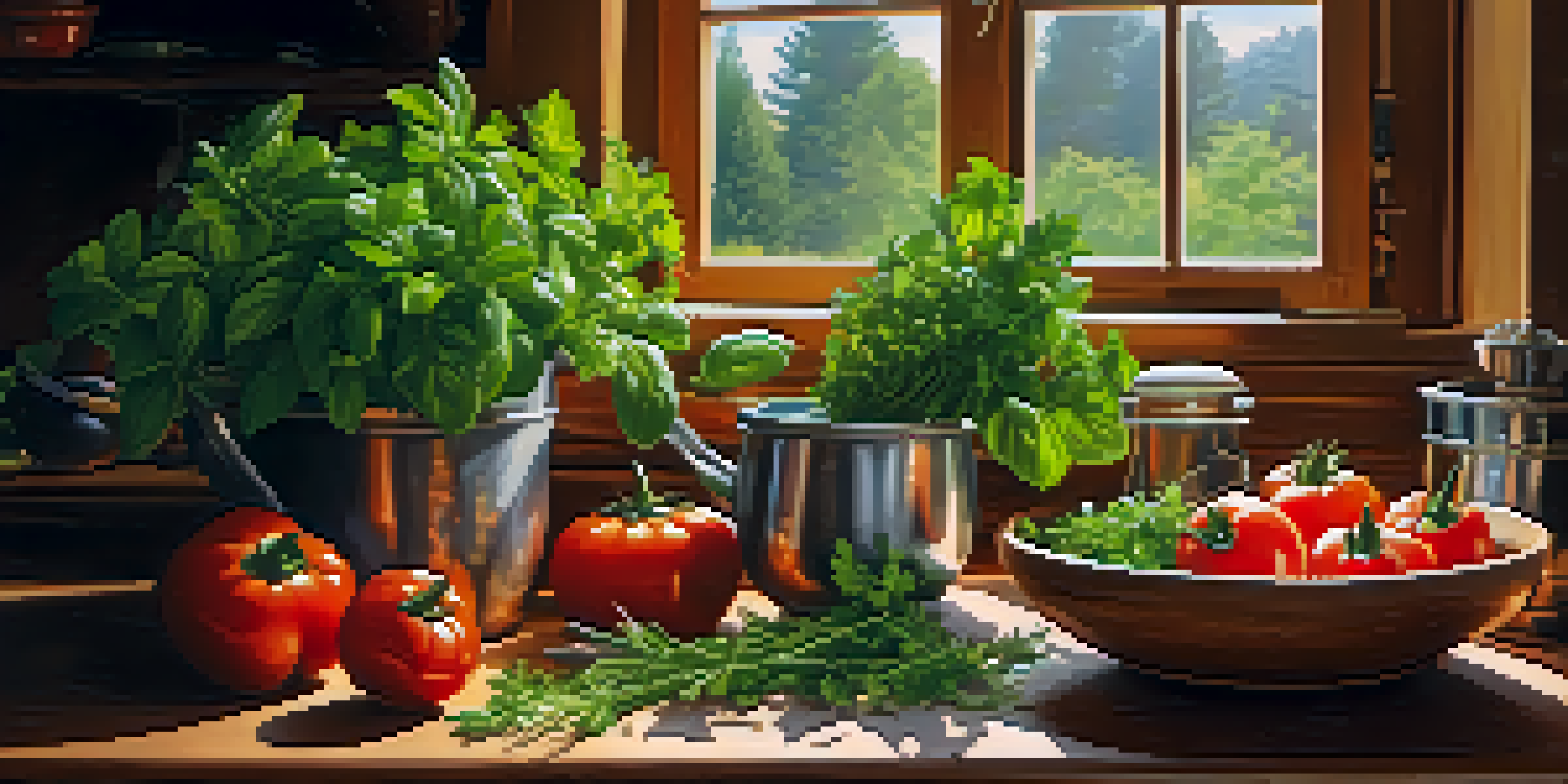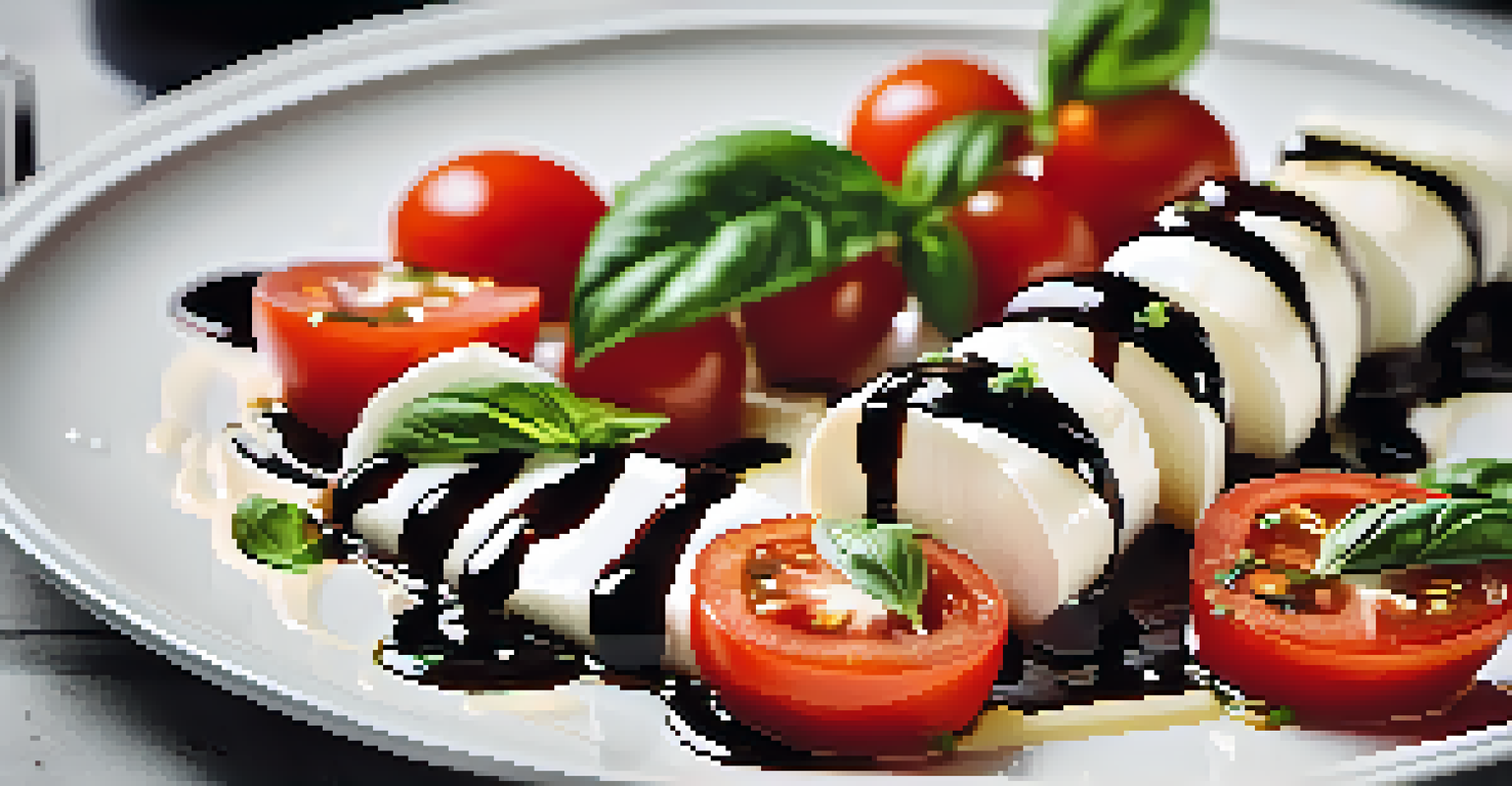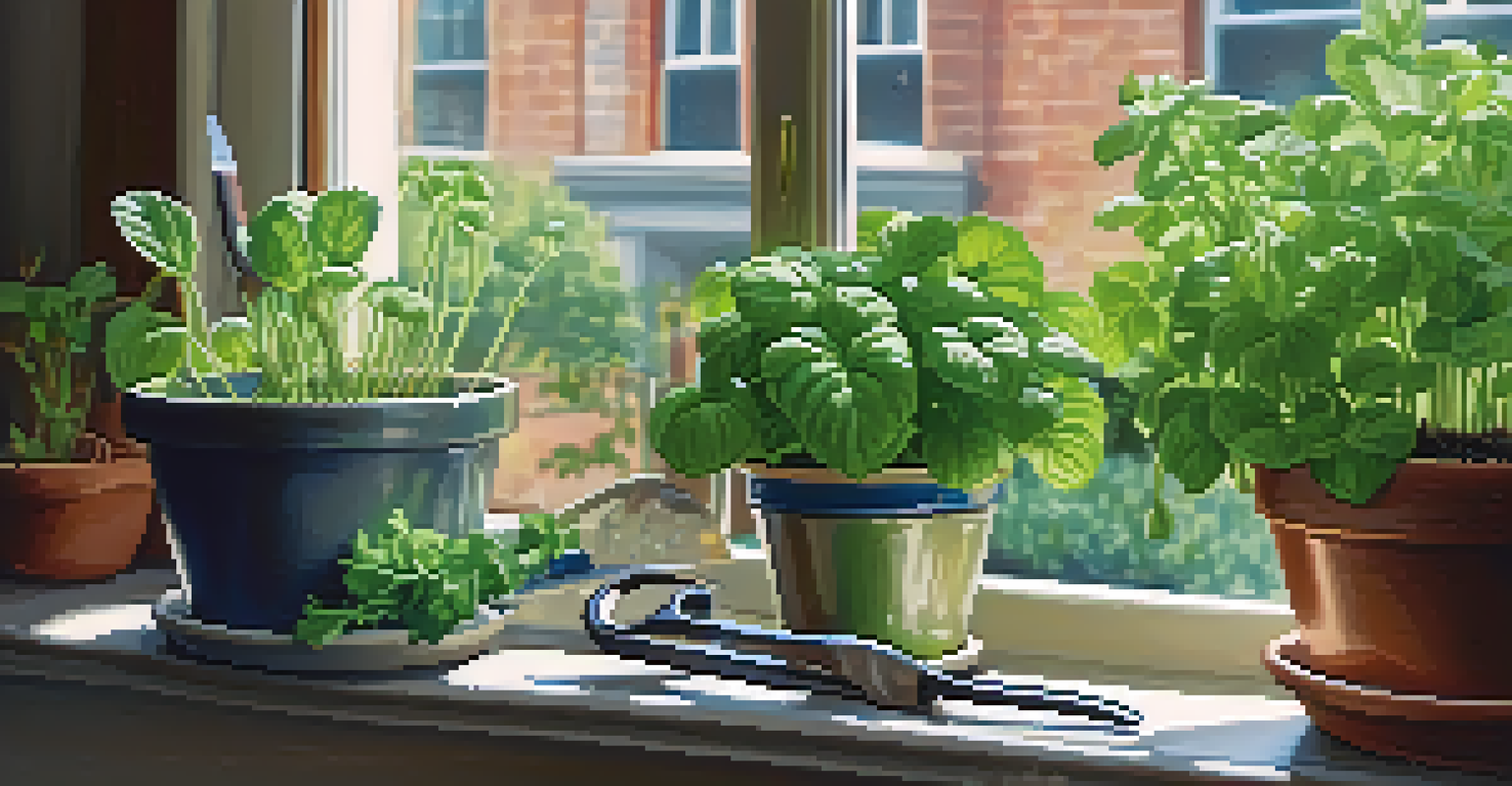Exploring the Essential Role of Herbs in Vegetarian Cooking

Understanding the Importance of Herbs in Cooking
Herbs play a vital role in cooking, especially in vegetarian dishes where the focus is often on plant-based ingredients. They not only enhance flavor but also introduce a variety of aromas and colors, making meals more visually appealing. Imagine biting into a fresh caprese salad; the basil leaves don't just taste good, they transform the dish into something special.
Herbs are the spice of life.
Additionally, herbs can bring depth to vegetarian meals that might otherwise seem bland. They can brighten up the simplest of dishes, from a bowl of quinoa to a hearty vegetable stew. When used correctly, herbs can complement the natural flavors of vegetables, creating a harmonious balance.
Understanding how to use herbs effectively can take your cooking from ordinary to extraordinary. By experimenting with different combinations and quantities, you can discover new flavor profiles that excite your palate and enhance your overall dining experience.
Common Herbs and Their Unique Flavors
Some herbs are household staples, while others might be lesser-known but equally delightful. Basil, for example, is perfect for Italian dishes, while cilantro shines in Mexican and Asian cuisines. Each herb has its own distinct flavor, which can significantly alter the overall taste of a dish.

Then there's rosemary, known for its robust and woody flavor, which pairs beautifully with roasted vegetables. On the other hand, dill's delicate taste complements pickled dishes and salads. Understanding these unique flavors helps you pair herbs with the right vegetables, enhancing the overall dish.
Herbs Enhance Flavor and Aroma
Herbs not only boost the flavor of vegetarian dishes but also add vibrant colors and aromas, elevating the overall dining experience.
Experimenting with various herbs can also inspire creativity in the kitchen. You might find that a dish typically made with parsley could become a standout when you swap in fresh tarragon instead, leading you to discover new favorites.
Herbs vs. Spices: What’s the Difference?
While both herbs and spices are essential for flavoring dishes, they come from different parts of plants. Herbs are typically derived from the leaves of the plant, like basil or parsley, while spices come from seeds, bark, or roots, such as cinnamon or cumin. This distinction is important in understanding how to use them effectively in vegetarian cooking.
Cooking is like love. It should be entered into with abandon or not at all.
Herbs tend to provide fresh and vibrant flavors, making them ideal for finishing dishes or enhancing salads. Spices, however, often bring warmth and depth, which can be crucial in creating a well-rounded vegetarian meal. Think of herbs as the bright notes in a song, while spices provide the rich background.
Utilizing both herbs and spices in your cooking can create a more complex flavor profile. For instance, a chickpea curry can benefit from the warmth of cumin paired with the brightness of cilantro, showcasing how these elements work together harmoniously.
Fresh vs. Dried Herbs: When to Use Which
When it comes to cooking, the choice between fresh and dried herbs can significantly impact the flavor of your dish. Fresh herbs offer a vibrant taste and aroma, making them perfect for garnishing or adding at the end of cooking to retain their brightness. Think of a sprinkle of fresh parsley on a vegetable soup; it adds not just flavor, but a pop of color.
Dried herbs, on the other hand, are more concentrated and can provide a deeper flavor when cooked for longer periods. They are fantastic for slow-cooked dishes or marinades, where they have time to release their flavors. A pinch of dried oregano in a simmering tomato sauce can elevate the entire dish over time.
Fresh vs. Dried Herbs Matter
Choosing between fresh and dried herbs can significantly impact a dish's flavor, with fresh herbs providing brightness and dried herbs offering depth.
Ultimately, knowing when to use fresh or dried herbs can elevate your cooking. If a recipe calls for fresh, but you only have dried, remember that the general rule is to use one-third the amount of dried herbs, as they are stronger in flavor.
Growing Your Own Herbs: A Beginner’s Guide
Growing your own herbs can be incredibly rewarding, both for your cooking and your garden. Even if you have limited space, many herbs thrive in pots on a windowsill or balcony. Basil, mint, and chives are particularly easy to grow and can be harvested throughout the season, ensuring you always have fresh ingredients on hand.
Not only does home gardening provide the freshest herbs, but it also allows you to connect with your food. Tending to your plants can be a relaxing activity, and there’s something special about plucking fresh herbs just before using them in a dish. It adds a personal touch to your cooking.
Plus, growing herbs is often more cost-effective than buying them from the store. With just a few pots and some soil, you can cultivate a mini herb garden that enhances your kitchen and your meals.
Incorporating Herbs into Everyday Meals
Incorporating herbs into your daily cooking doesn’t have to be complicated. Start by adding a handful of fresh herbs to your salads or smoothies for an extra burst of flavor and nutrition. You might be surprised at how a few leaves of spinach and basil can transform a green smoothie into a gourmet treat.
Herbs can also enhance the flavors of your main dishes. Sprinkle chopped herbs over roasted vegetables or stir them into soups and stews. For instance, adding thyme to a vegetable broth can elevate its flavor profile, making it both comforting and delicious.
Herbs Offer Health Benefits
Incorporating herbs into your meals not only enhances taste but also provides nutritional benefits, supporting overall health and wellness.
Even simple dishes like scrambled eggs or pasta can be transformed with the addition of fresh herbs. A touch of chives or parsley can make a world of difference, turning a basic meal into something special and flavorful.
Health Benefits of Cooking with Herbs
Beyond enhancing flavor, herbs also pack a nutritional punch. Many herbs, like parsley and cilantro, are rich in vitamins and antioxidants, which can support overall health. Incorporating a variety of herbs into your diet can help boost your immune system and improve digestion.
Some herbs even have medicinal properties. For example, ginger is known for its anti-inflammatory effects, while peppermint can help soothe digestive issues. By using herbs regularly in your cooking, you’re not just adding flavor; you’re also promoting a healthier lifestyle.

Moreover, cooking with herbs can be a great way to reduce salt intake, as they provide a flavorful alternative to seasoning. This makes it easier to enjoy delicious meals while maintaining a balanced diet.